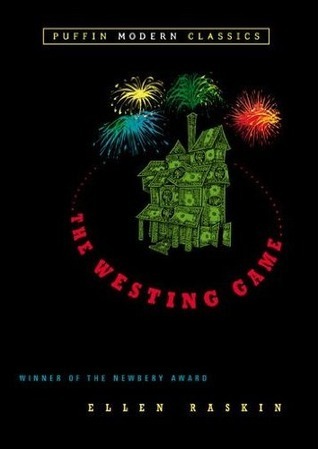The Westing Game, by Ellen Raskin is young adult fiction at its finest. I remember listening to the audiobook as a kid – probably when I was middle school age. I was enamored with the story, the style, and especially the end. I have recommended it to people over the years, saying if you like a good game of chess, you’ll like The Westing Game.
At one point, I had two copies in my library. I bought the second one because I loved the book and couldn’t remember if I had a copy already.
Before I get to the story, I want to share a brief bit from the introduction which was written by the author’s close friend and editor Ann Durell.
“What a mind [Ellen Raskin] had! Mine was really put to the test in trying to keep it all straight in order to double-check her. She relied on me to do that and to tell her when her writing was ‘too adult.’ She said, with her usual candor, that she didn’t know what children’s books were like. She read only adult ones. But I never even tried to edit her ‘for children.’ She was too wise, too funny, too ingenious – and therefore unique – to tamper with in that way. She said that she wrote for the child in herself, but for once I think she was wrong. I think she wrote for the adult in children. She never disrespected them or ‘wrote down,’ because she didn’t know how.”
And I think that’s what I love about The Westing Game. The book itself is complex, a mystery with so many clues and details that you really have to be paying attention if you want to solve it before the end. However, you may notice (if you are a frequent visitor to my blog), I won’t have many New Words from The Westing Game. That’s because Ellen Raskin used simple, common words so her young audience would be able to follow along without much difficulty. You don’t have to remember all the details to enjoy The Westing Game.
What is the story of The Westing Game, you ask? Let me give you a bite from the beginning, because the author speaks for herself.
“The letters were signed Barney Northrup… and there was no such person as Barney Northrup.”
There. The mystery is set three paragraphs in. What strange letters could this non-existent person be sending?
Six letters were delivered to the future tenants of a new apartment building, Sunset Towers (which was a strange name because there were no towers and the building faced east). Advertised and talked up in such a way, the apartments were rented out to exactly the people who received the letters. “You’re in luck,” Barney Northrup told every one of them. “There’s only one apartment left. It was meant for you!”
“Who were these people, these specially selected tenants? They were mothers and fathers and children. A dressmaker, a secretary, an inventor, a doctor, a judge. And, oh yes, one was a bookie, one was a burglar, one was a bomber, and one was a mistake.”
How’s that for a beginning? The plot is thick, and we’re only in chapter one!
The tenants live in the building several months without incident. Some like each other; others don’t. But their lives are changed on Halloween, when a gruesome legend is combined with a dare, and the youngest tenant, Turtle Wexler, enters the old, abandoned house next door where she finds the corpse of the long lost resident, Samuel W. Westing.
Sixteen of the tenants are called on to attend the reading of the will and find they have been named heirs. They are separated into pairs, and then the will is read. It’s a bizarre set of rules, with a bizarre set of clues for each pair to help them discover who murdered Sam Westing. Yes, you read that right: Sam Westing was murdered.
Suddenly, all the tenants of Sunset Towers are thrown into a game of who-done-it.
The prize: Sam Westing’s two hundred million dollars.
The heirs begin to discover things about each other they never knew. Friendships are formed, suspicions rise, and to top it all, a heavy snowfall traps them all inside – with the bookie, the burglar, the bomber, the mistake, and the murderer.
Who killed Sam Westing? What do the clues mean? And who will pull Turtle’s braid next – resulting in a shin splitting kick?
And where does chess come in? Though it’s mentioned briefly during the first reading of the will, the significance of chess plays a greater role toward the end of the book. Strategy, precision, and patience are what help the winning heir in the end. That, and the wink of the chess master himself.
I really hope you will read this book. It’s easy; it’s fun. You don’t even have to be great at puzzles (or chess) to enjoy it. Just get your thinking cap and be ready to laugh.


